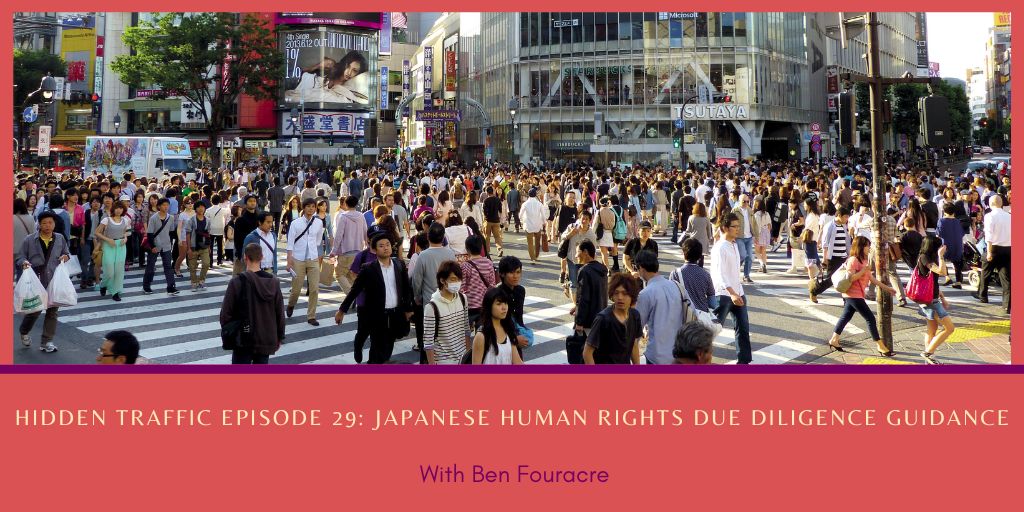
Gwen Hassan welcomes Ben Fouracre, Managing Director and Global Investigations Lead for Asia Pacific and Japan at J.S. Held LLC. Ben has spent 16 years in Japan working with non-Japanese, non-Asian companies to help them develop and execute their compliance strategy. He is an expert in risk, supply chain, labor and environmental issues, as well as anti-corruption, anti-bribery and anti-money laundering, with a focus on human trafficking.
The biggest focus in Asia has been foreign regulation, such as the FCPA. Many Japanese companies have fallen afoul of these regulations, which has led to the development of compliance departments and training. Companies in the region are now also increasingly focusing on sustainability and the social side of ESG. The Ministry of Economy, Trade and Industry and the Ministry of Foreign Affairs have been pushing for companies to have their own ESG strategy, goals and internal evaluation, and to focus on human rights and foreign policy.
The Japanese government conducted a survey that revealed one in five companies in Japan don’t have guidelines or safeguards related to human rights protection in their supply chains. However, there are some good examples of Japanese companies that are ahead of the curve. The Japanese government issued human rights due diligence guidelines, but there is still a need for proactive measures to be taken to ensure companies are doing what they say. Although there is no definitive timeline or law in Japan, companies are responding to pressure from stakeholders such as investors, shareholders, customers, and employees to work towards sustainability.
Ben believes that companies must be seen as contributors, not profiteers off environmental and social harm. As such, policies and procedures must be implemented and evolve with the business. In particular, companies need to take a proactive approach to supplier risk profiling. This includes understanding the size, operations, and history of the supplier, their relationship with the company, and any potential risks the company may face from stakeholders when it comes to human rights issues such as child labor and forced labor.
NGOs have been actively raising awareness of issues related to sustainability and social responsibility, Ben points out. To ensure transparency and ethical and socially viable practices, companies should strive to engage in dialogue with NGOs. This allows them to better understand the issues and look for solutions.
Resources





